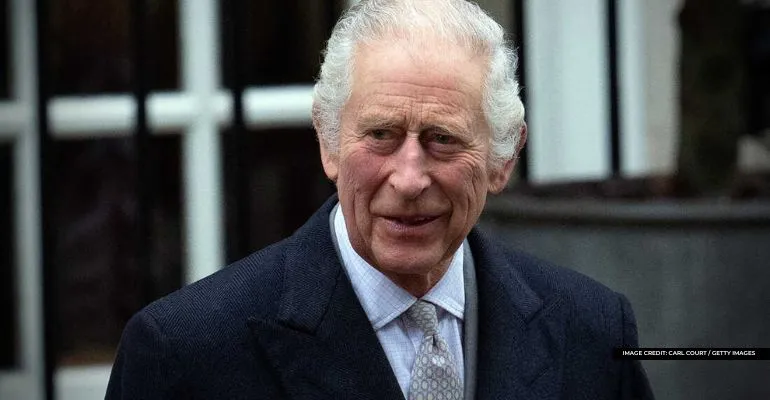Buckingham Palace has released a statement confirming that King Charles III has received a cancer diagnosis on Monday, February 5.
“During The King’s recent hospital procedure for benign prostate enlargement, a separate issue of concern was noted. Subsequent diagnostic tests have identified a form of cancer,” Buckingham Palace said.
While not specifying the type of cancer, Buckingham Palace announced that King Charles III commenced standard treatments on Monday. The Palace further mentioned that public responsibilities for the King will be deferred during this period.
The Monarch, 75, “remains wholly positive about his treatment and looks forward to returning to full public duty as soon as possible,” they added.
No additional information is being disclosed regarding the cancer stage or prognosis. Charles personally informed both of his sons about the diagnosis, and there is regular communication between the Prince of Wales and his father.
The Duke of Sussex, Prince Harry, currently residing in the United States, has spoken to his father and is set to travel to the UK to visit him in the upcoming days.
On Monday morning, the King traveled back to London from Sandringham in Norfolk and commenced outpatient treatment, according to the palace.
The statement mentioned that medical advice prompted the 75-year-old monarch to defer public-facing responsibilities, though he will persist with state affairs and administrative tasks.
“The King is grateful to his medical team for their swift intervention, which was made possible thanks to his recent hospital procedure,” the statement said.
Expressions of encouragement started pouring in from throughout the United Kingdom and its allies. British Prime Minister Rishi Sunak expressed his well-wishes on Twitter, stating that the entire country would be hoping for the King’s recovery. President Biden, when asked by reporters, conveyed his concern, saying, “I’m worried about him.”
Even though many individuals may face the same illness as Charles, not everyone is fully informed about the indicators and symptoms.
These encompass alterations in bowel patterns, bloating, bleeding, the presence of lumps or moles, unexplained weight loss, indigestion or heartburn, itchy or yellow skin, abdominal or back discomfort, and feelings of fatigue or unwellness.
Even though the likelihood of it being cancer is low, it is crucial to consult a GP if there are any unusual symptoms, allowing for thorough investigation. The sooner cancer is detected, the more manageable it is to treat.
This development occurs within a year and a half of Charles assuming the throne, succeeding the passing of his mother, Queen Elizabeth II.
Keep Reading: King Charles to undergo prostate treatment next week

Leave a Reply